
Feb 9, 2021 | Blog, Cross-Organizational Information Sharing
Many countries in the Global South are not fortunate enough to have the infrastructure or tools that we take for granted. Things as simple as knowing where a community is can mean life or death when battling disease. Join us as Dr. Victoria M. Gammino walks us through her work turning geospatial data into the tools and technology needed to keep the world healthy and disease free.
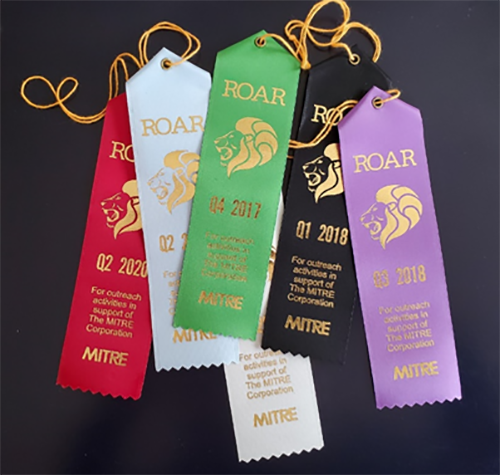
Jan 4, 2021 | Blog, Cross-Organizational Information Sharing
Charles Schmidt worked with his leadership in the Cyber Security Technical Center to figure out ways to incentivize better use of Tech Stature to record outreach activities. The Collaboration & Information Management department in Corporate Operations created the initial ROAR website to record awardees, and the Digital Content and Creative department designed the ROAR ribbons with their roaring lion icon. Thanks to these collective efforts, the Ribbons for Outreach Activity Recognition, or ROAR, was born.

Dec 12, 2020 | Analytic Tools, Blog, Capabilities, Cognitive Assistance, Knowledge Advantage
Quantum technologies frequently appear in popular science articles and can also be a popular speculative conversation topic among interested professionals. This is for good reason: Quantum technologies have the potential to be game changing in many ways, but that fact can be misleading as to how soon, and how direct, those impacts will be to our everyday lives. As a trusted advisor to many government sponsors, MITRE explains these technologies and aims to temper expectations when necessary.

Sep 14, 2020 | Blog, Cross-Organizational Information Sharing
It’s no secret that change can be difficult and slow, especially when it comes to changes at work. Just this week, I heard an executive say, “Anyone who tells you that change is easy hasn’t done it before.”
Yet this year, many of us have quickly embraced virtual collaboration tools. We’ve all experienced numerous other changes, especially as we untethered from the “40 hour+ work on-site” culture. Why have we been so quick to adopt Zoom, Slack, and Office 365? What can we learn from this recent experience so that we can support our colleagues through future change?

Sep 7, 2020 | Blog, Collaboration, Partnerships and Social Media
In 2012, The Economist penned an obituary for the Public-Private Partnership (PPP). The headline: ‘RIPPP’. Eight years later however PPPs are very much alive and the appetite for them has not slowed in spite of high-profile scandals and debates about the commodification of public infrastructure.
PPPs, while diverse and increasingly complex, can most easily be thought of as a long-term contract between a public agency and a private party to execute or operate a project.
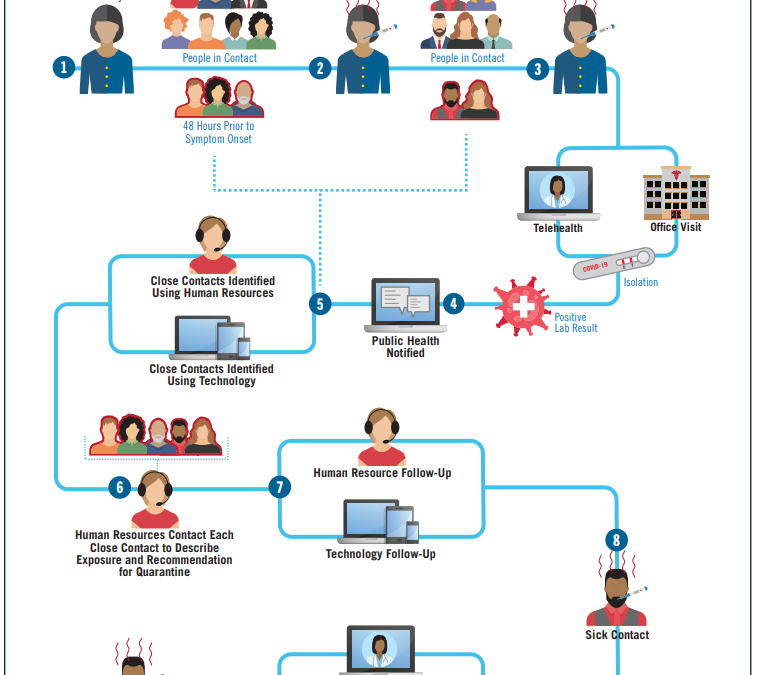
Sep 1, 2020 | Blog, Cross-Organizational Information Sharing
A computer scientist looks at a refugee crisis to model a pandemic.
How does that connection work exactly and why? If it appears to resemble a scenario in which a farmer learns how to plant an apple orchard by examining the supply chain for manufacturing orange juice, well, you may actually be onto something. The novel coronavirus has presented unprecedented medical, social, and economic challenges, which means that the thoughtful people responding have no choice but to innovate. However, in 2020, innovation doesn’t mean going where no one has gone before. It means harvesting everything that has come before in a disciplined way to see what might bear fruit.
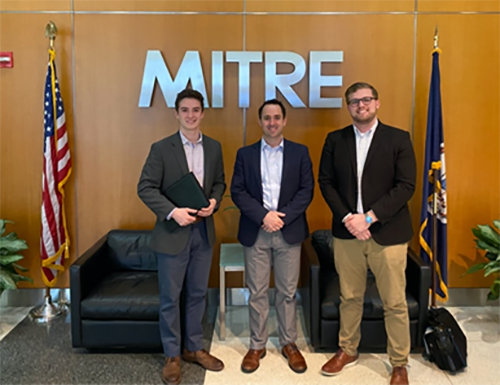
Aug 17, 2020 | Blog, Cross-Organizational Information Sharing
In designing solutions to some of the most pressing, complex, entrenched problems facing the nation, MITRE employees know they have to get creative.
And, as a company working in the public interest, we want to be sure the next generation of engineers and business leaders can address similarly formidable challenges. We want them to get creative too.
That’s why we recently deepened our partnership with James Madison University in Harrisonburg, VA by bringing MITRE into the classroom.
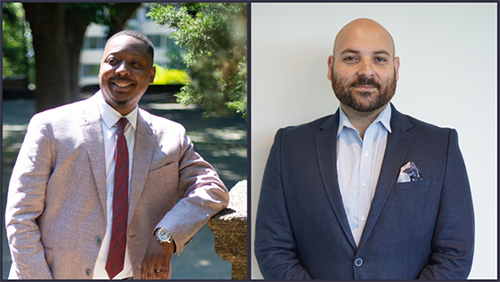
Aug 10, 2020 | Blog, Collaboration, Partnerships and Social Media
The STEM field has been described as the great equalizer, a field that celebrates and elevates those who contribute to it. Still, many students, especially students of color, find it intimidating and hard to approach. Fortunately, individuals like Willie Hill are dedicating their time and talents to show students of all backgrounds that STEM is fun and worth getting excited about.
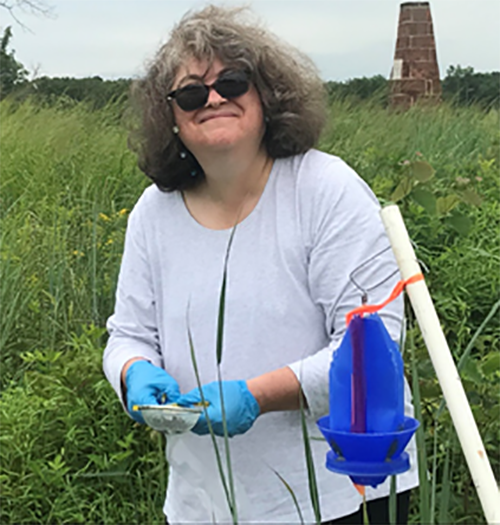
Aug 4, 2020 | Blog, Cross-Organizational Information Sharing
“Science,” “collaboration,” and “serving the best interests of the wider community” are cherished values at MITRE, as is the concept of continuous learning. At MITRE, citizen science is thus a volunteer and civic activity, a hobby, a tool for research, a source of learning, a professional and social networking opportunity, and a means of giving back to the scientific community.

Jul 25, 2020 | Blog, Collaboration, Partnerships and Social Media
This story is the first in a series about how The MITRE Corporation tackles complex problems. This first article probes the concept of upstream thinking in the context of veteran wellness and the value of designing with people rather than for them.
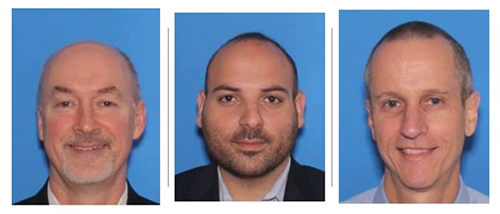
Jul 20, 2020 | Blog, Collaboration, Partnerships and Social Media
Air travel has become so commonplace to the point where many of us never even think about the wonder of flying on an aircraft or being able to send things around the world over night. And yet every day, countless agencies and individuals around the world move in a coordinated ballet even in the face of a global pandemic.
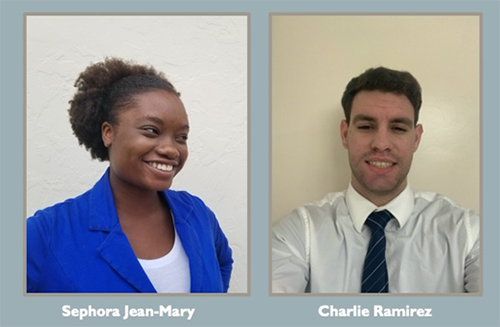
May 31, 2020 | Blog, Cross-Organizational Information Sharing
As graduating seniors at Florida International University (FIU), Charlie Ramirez and Sephora Jean-Mary headed into their final semester aiming to find a real-life business problem they could solve. Their senior design capstone project was supposed to enable these two front-end developers to display what they’d already learned as computer science students.
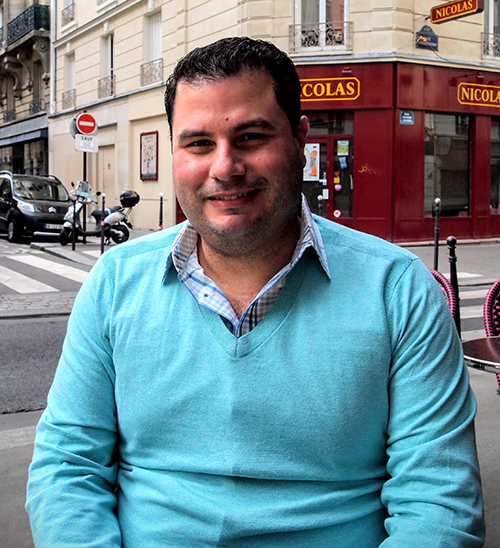
May 8, 2020 | Blog, Cross-Organizational Information Sharing
Despite our modern world, many systems aren’t built with uncertainty in mind. Alas, these unexpected events may become the new normal. Fortunately, Imanuel has been leading the charge to re-examine how we design and implement systems with new approaches that make them more resilient to the unexpected. Listen in as we explore how his work is helping the world prepare for the next natural disaster or global pandemic.

Apr 6, 2020 | Blog, Collaboration, Partnerships and Social Media
As the Coronavirus began impacting social and professional life, I noticed a lot of friends, family, and acquaintances posting to social media that they were learning or relearning how to knit and crochet.

Mar 21, 2020 | Blog, Cross-Organizational Information Sharing, Knowledge Advantage, Learning Organization
MITRE’s talents for strategic modernization (e.g., enterprise planning, organizational change, business innovation, technology transitioning) are informed by both our explicit knowledge and our tacit knowledge. Explicit knowledge is what we objectively know. Explicit knowledge can be readily articulated, codified, stored and accessed, and transmitted to others, and represents an estimated 20% of our knowledge (e.g., plans, reports, data analysis). Implicit or tacit knowledge is more subjective.
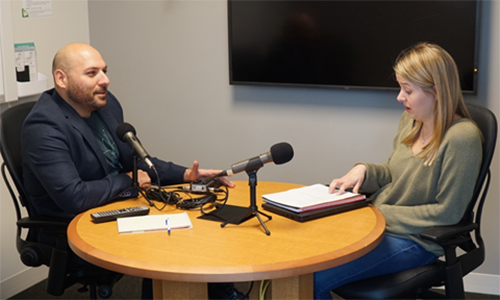
Feb 2, 2020 | Blog, Cross-Organizational Information Sharing
Rachel Mayer has grown up with medicine on the mind, but one subject has always been at the forefront: Maternal mortality. In a country as advanced and capable as the United States, why is Maternal Mortality still so high? While many public health practitioners often turn to medicinal interventions, she turned to data.
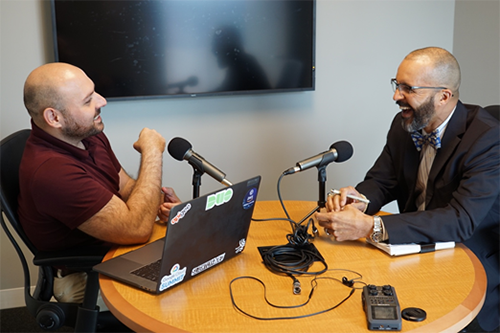
Jan 6, 2020 | Blog, Collaboration, Partnerships and Social Media, Knowledge Advantage
Theodore “Turtle” Wilson has made a name for himself inspiring change. MITRE has never been short on good ideas, but getting others to embrace those ideas is always a challenge. That’s when you need to call in someone who can empathize with the folks you want to help, while seeing the big picture—someone like Turtle.

Dec 16, 2019 | Blog, Knowledge Advantage
Delve into the history and meaning of risk, and you may be surprised to find that the word risk has an uncertain etymology. Depending on the domain, definitions of risk may be based on probability, danger, uncertainty, or chance.

Nov 4, 2019 | Blog, Cross-Organizational Information Sharing
We’ve all been there—sitting in the waiting room of a doctor’s office, filling out redundant forms with our healthcare history. Each time, we sit with silent frustration, wondering why we must complete the same paperwork every time we visit our healthcare provider.
We wonder: It’s 2019. Shouldn’t transmitting health information from one place to another be seamless?

Oct 28, 2019 | Blog, Collaboration, Partnerships and Social Media
MITRE staff, teleworkers, and business partners are attending more and more meetings virtually from different locations. Among the options at MITRE for communicating and sharing non-sensitive information, Slack, a cloud-based team collaboration tool, has become a meeting place where people can work productively and feel comfortable—much like a virtual coffee shop.




















